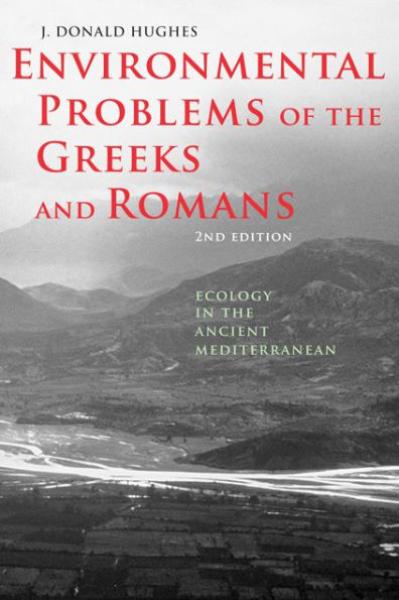Description
In this dramatically revised and expanded second edition of the work entitled Pan's Travail, J. Donald Hughes examines the environmental history of the classical period and argues that the decline of ancient civilizations resulted in part from their exploitation of the natural world. Focusing on Greece and Rome, as well as areas subject to their influences, Hughes offers a detailed look at the impact of humans and their technologies on the ecology of the Mediterranean basin.
Evidence of deforestation in ancient Greece, the remains of Roman aqueducts and mines, and paintings on centuries-old pottery that depict agricultural activities document ancient actions that resulted in detrimental consequences to the environment. Hughes compares the ancient world's environmental problems to other persistent social problems and discusses attitudes toward nature expressed in Greek and Latin literature.
In addition to extensive revisions based on the latest research, this new edition includes photographs from Hughes's worldwide excursions, a new chapter on warfare and the environment, and an updated bibliography.
In addition to extensive revisions based on the latest research, this new edition includes photographs from Hughes's worldwide excursions, a new chapter on warfare and the environment, and an updated bibliography.--Danielle M. La Londe "Bryn Mawr Classical Review"
J. Donald Hughes is John Evans Distinguished Professor and a professor emeritus of history at the University of Denver. His books include The Mediterranean: An Environmental History, An Environmental History of the World: Humankind's Changing Role in the Community of Life, and What is Environmental History?
"A compelling recital of man's mistreatment of the Mediterranean environment."
--Greece and Rome"A significant contribution to understanding the relationship between classical civilization in the Mediterranean Basin and its contemporary natural environment during the period from 800 B.C. to 600 A.D.... Worthwhile and thought-provoking reading."
--Bryn Mawr Classical Review"Hughes considers serially all the ways in which the ancients influenced their environment. He describes each aspect thoroughly, using ancient literature, archaeology, and ecological evidence to paint a picture of degeneration through overuse and lack of attention to consequences... The author's personal recollections enliven the text, and a comprehensive bibliography provides entrance to further research."
--Choice"Hughes deserves great praise for updating a valuable overview of the problems ancient Greeks and Romans caused and faced within the natural environment of the Mediterranean basin. His work gives the undergraduate or non-specialist in particular a new view of the ancient world that will enrich her or his understanding of classical antiquity."
--Danielle M. La Londe "Bryn Mawr Classical Review ""This backward glance at glorious civilizations--now vanished, in part, because they neglected the long-term limits of their growth--should serve as an object lesson to those who argue that goodwill and technical ingenuity alone can sustain societies indefinitely."
--The Sciences
Product Details
- Johns Hopkins University Brand
- Feb 15, 2014 Pub Date:
- 142141211X ISBN-10:
- 9781421412115 ISBN-13:
- 306 Pages
- 8.92 in * 6.37 in * 0.76 in Dimensions:
- 1 lb Weight:




